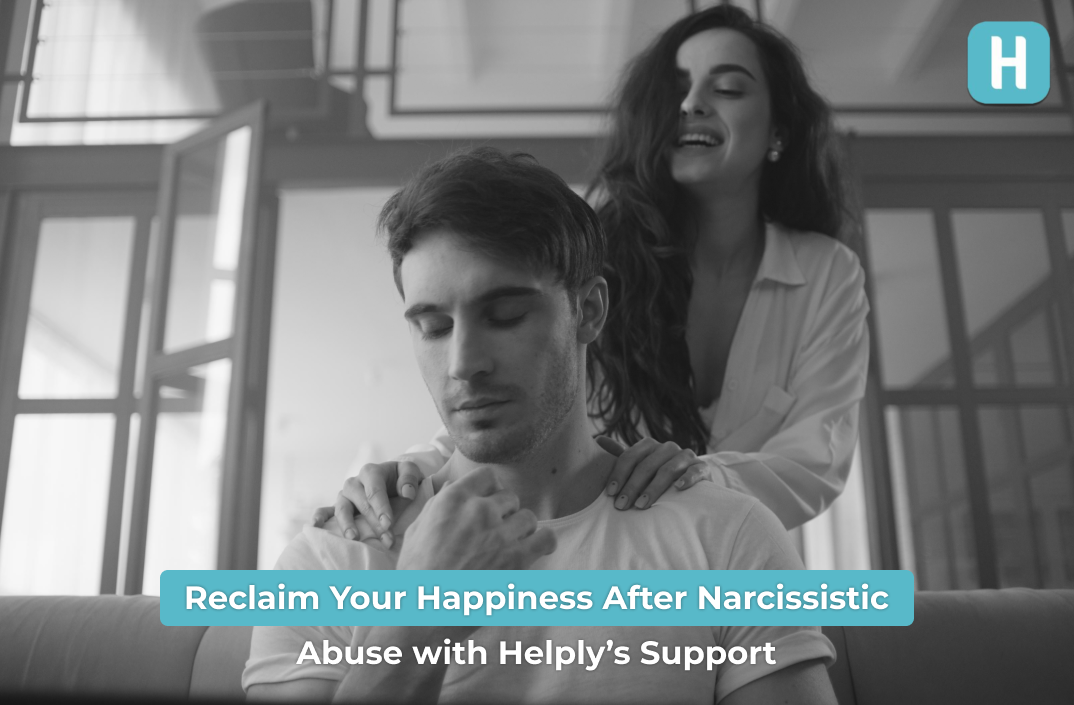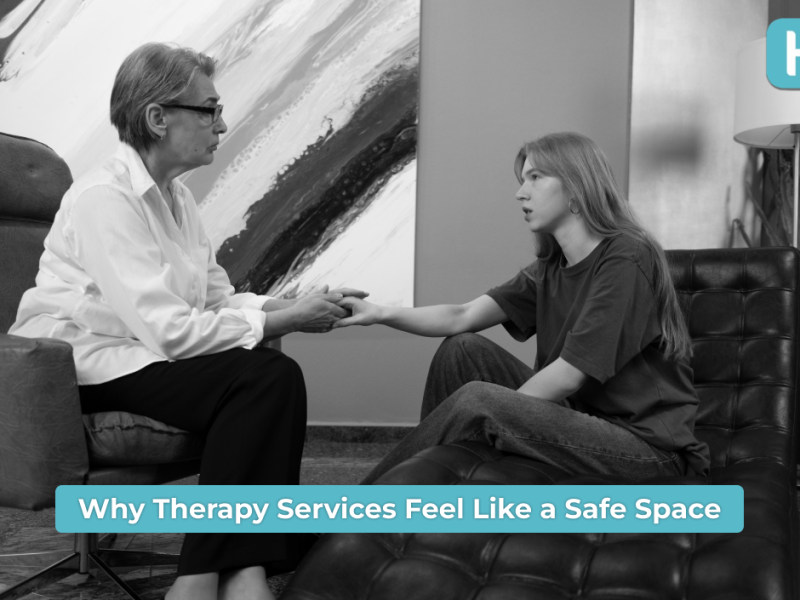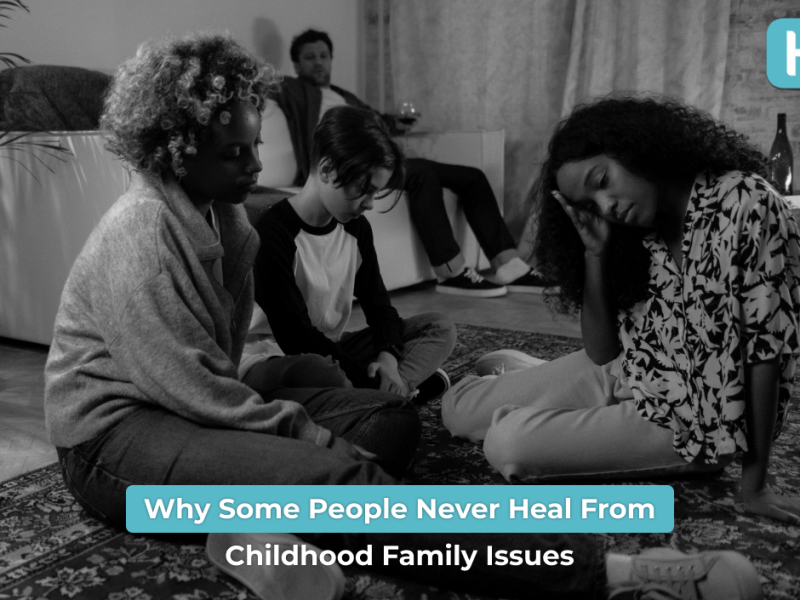Narcissistic abuse isn’t just a toxic relationship; it’s an experience that deeply affects your mind, body, and spirit. If you’ve ever been in a relationship with someone who constantly downgrade you, manipulates your reality, and makes you feel small, you’re not alone. Narcissistic abuse leaves scars that can take years to heal, but it’s absolutely possible to reclaim your happiness. The journey might be tough, but with the right support ,like that from Helply ,you can find your way back to peace, self-love, and joy.
What is Narcissistic Abuse?
When we talk about narcissistic abuse, we’re talking about a pattern of emotional and psychological manipulation. It’s subtle at first but gets worse over time. People with narcissistic personality disorder (NPD) need constant admiration and control over others, and they often make those around them feel like they’re never good enough. The abuse is not just about harsh words or insults ,it’s about controlling your thoughts, emotions, and actions until you start questioning everything about yourself.
It’s difficult to spot, especially when the narcissist is charming or loving at the start. But over time, they begin to wear you down, dismiss your feelings, and make you feel like you’re losing your grip on reality. Narcissistic abuse leaves you wondering: Is this my fault? Am I overreacting? Why do I feel like I’m losing myself?
Narcissistic Personality Disorder is characterized by an inflated sense of self-importance
Understanding Narcissistic Personality Disorder (NPD)
At the heart of narcissistic abuse is narcissistic personality disorder (NPD). Those with NPD see themselves as superior to others and often lack empathy. They feel entitled to special treatment and demand constant admiration. Relationships with people who have NPD can be emotionally draining because everything revolves around them ,their needs, their emotions, their wants.
For someone with NPD, others are not treated as equals but rather as tools to be used. If you’ve been in a relationship with someone like this, you may have felt like you were constantly walking on eggshells, trying to avoid angering them. Narcissists often manipulate, lie, or distort the truth to keep control, and this leaves victims confused and emotionally exhausted.Victims of narcissistic abuse often suffer from emotional manipulation, leaving them feeling isolated and powerless
Recognizing the Signs of Narcissistic Abuse
The signs of narcissistic abuse aren’t always obvious, and they can sneak up on you. But if you notice any of these patterns, it’s a sign you might be in an unhealthy, narcissistic relationship:
- Constant criticism: Narcissists love to tear down your confidence by constantly criticizing your every move. No matter what you do, it’s never enough.
- Gaslighting: If you’ve ever been made to question your own reality, your memories, or your feelings, you’ve experienced gaslighting. Narcissists are masters at making you doubt yourself.
- Emotional manipulation: They’ll make you feel guilty for things that aren’t your fault, or twist your emotions to get what they want.
- Isolation: Narcissists often cut you off from friends, family, or anyone who might support you, leaving you isolated and dependent on them.
- Love-bombing: At the start of the relationship, they might shower you with affection, only to withdraw it when you get too close, creating an unhealthy cycle of emotional highs and lows.
If you see these patterns, it’s important to recognize them for what they are. Narcissistic abuse isn’t your fault, and you deserve better.

The Long-Term Effects of Narcissistic Abuse
The impact of narcissistic abuse isn’t just about what happened in the moment; it’s about the long-lasting effects it has on your emotional health. These effects can stick with you for a long time, even after the relationship ends:
- Low self-esteem: After years of being belittled and told you’re not good enough, it’s easy to lose sight of your worth.
- Depression and anxiety: Narcissistic abuse can lead to feelings of sadness, hopelessness, and worry. Victims often feel overwhelmed by the emotional toll.
- Trust issues: After being manipulated and lied to, trusting others can be incredibly hard.
- Post-traumatic stress disorder (PTSD): The trauma of narcissistic abuse often leads to PTSD, with victims reliving painful moments through flashbacks or nightmares.
- Difficulty forming healthy relationships: After being controlled and manipulated, it can be tough to trust and connect with others in a healthy way.
These effects may make you feel like you’ll never be the same, but with time, care, and support, you can heal. Narcissistic Personality Disorder involves a heightened sense of entitlement and superiority.
You Are a Survivor, Not a Victim
If you’ve been through narcissistic abuse, you’re a survivor. It’s important to shift the narrative from being a victim to being someone who has survived and can move forward. Healing isn’t about forgetting the past; it’s about learning to live free from the chains of narcissistic abuse.
Helply is here to guide you through this healing process. With their support, you don’t have to walk this path alone. Their therapy and counseling services provide a safe, non-judgmental space where you can process the trauma and rebuild your confidence, step by step. You’re not broken; you’re healing.
How to Start Healing from Narcissistic Abuse
The journey to healing from narcissistic abuse is personal and unique to each person, but there are several steps that can help you get started:
- Seek therapy: Healing is hard to do alone, and talking to a therapist who specializes in narcissistic abuse can be incredibly helpful. They can help you rebuild your self-esteem, process the trauma, and learn healthy coping mechanisms.
- Set boundaries: Narcissists violate boundaries, and you may have forgotten what it’s like to have healthy ones. Learning to set and maintain boundaries is crucial to your recovery.
- Surround yourself with supportive people: Narcissists often isolate their victims, so it’s essential to reconnect with supportive friends, family, or support groups.
- Take care of yourself: Self-care isn’t just about relaxing; it’s about taking care of your emotional, physical, and mental well-being. Do things that bring you joy, even if it’s just for a few minutes a day.
- Give yourself time: Healing isn’t immediate, and it’s okay to take it slow. Be patient with yourself, and allow yourself the grace to heal in your own time.
How Narcissistic Abuse Alters Your Reality
One of the most damaging aspects of narcissistic abuse is how it warps your sense of reality. Narcissists are often masters of manipulation, and their primary goal is to control how you see yourself and the world around you. Narcissistic abuse long-term effects can include chronic emotional pain, low self-worth, and difficulty trusting others.
Gaslighting, for example, is a common tactic used by narcissists to distort the victim’s perception of reality. When you start to question their actions or confront them about a lie, they may respond by denying the truth, making you feel like you’re crazy. The constant back-and-forth of contradictory statements can leave you feeling unsure of your own memories or emotions. This is a powerful form of emotional abuse that takes away your ability to trust yourself. Narcissistic abuse long-term effects often lead to emotional numbness, PTSD, and a constant feeling of inadequacy. Over time, victims of narcissistic abuse may struggle with trust, self-esteem, and understanding their own reality.
As time goes on, the narcissist’s manipulation makes it harder to distinguish between truth and fiction. You may find yourself questioning whether certain events actually happened or whether you’re overreacting. This can be an incredibly isolating experience, as it often leads to self-doubt and anxiety. This is where seeking professional support, like therapy or counseling, becomes crucial in reclaiming your happiness.Narcissistic abuse long-term effects can result in persistent feelings of insecurity, self-doubt, and emotional exhaustion.
Breaking Free from the Narcissist’s Grip
Narcissistic abuse often thrives because the victim feels trapped in a cycle of emotional highs and lows. The narcissist may shower you with affection, making you believe things will improve, only to pull away when they feel their control slipping. This behavior can create a dependency on the narcissist for emotional validation, and breaking free from that cycle can feel impossible.
However, freedom begins when you make the decision to take your power back. It’s essential to acknowledge that you are not responsible for the narcissist’s behavior. Their manipulation, lies, and emotional abuse are not a reflection of your worth , they are a reflection of their inability to treat others with respect.
Reaching the point where you can detach from the narcissist’s control is often one of the most empowering steps in the recovery process. It may involve cutting contact, blocking them on social media, or seeking a safe space away from them. These decisions are not easy, but they are necessary for your healing.
Finding Yourself Again: A Journey to Rediscover Who You Truly Are
After being in a narcissistic relationship, it’s common to feel lost. Over time, you may have lost sight of who you truly are , your passions, your needs, your desires. Narcissists often suppress the individuality of their victims, and once you’ve broken free, it can take time to rediscover yourself.Narcissistic abuse long-term effects can include persistent feelings of low self-esteem, anxiety, and depression.
Reconnecting with your true self is an essential part of reclaiming your happiness. Helply’s support provides a safe space for you to rediscover your identity. In therapy, you can explore the parts of yourself that may have been neglected or forgotten during the abuse. You’ll have the opportunity to reflect on your values, passions, and goals without the narcissist’s influence.
Start by taking small steps to re-engage with activities that once brought you joy. Whether it’s picking up a forgotten hobby, spending time with supportive friends, or setting new goals, every step you take will help you rebuild your sense of self-worth and purpose.
Building Healthy Relationships After Narcissistic Abuse
One of the lingering effects of narcissistic abuse is difficulty trusting others. If you’ve been manipulated, lied to, and isolated, trusting anyone, even those who genuinely care for you, can feel daunting. It’s important to acknowledge these fears but not let them define your future.
Building healthy relationships again starts with setting clear boundaries. Narcissistic abuse teaches you that your boundaries don’t matter, but in recovery, you must learn to establish and maintain them. This can be incredibly empowering and healing. With boundaries in place, you can begin to rebuild trust and form relationships that are rooted in respect and equality. A narcissistic abuse survivor is someone who has endured emotional and psychological manipulation from a narcissist.
Support groups and therapy can also play a key role in helping you feel safe with others. Connecting with people who have experienced similar abuse can help you feel less isolated and more understood. Over time, you will learn to navigate relationships with more confidence and clarity, without the fear of being manipulated or controlled.

The Role of Helply in Your Healing Journey
At Helply, we understand that narcissistic abuse is not just about the emotional scars; it’s about the journey to reclaim your life. Our mission is to help survivors of narcissistic abuse rebuild their sense of self and gain the tools they need to thrive. Whether you’re just starting your healing journey or have been on it for a while, we’re here to support you every step of the way.
Our approach focuses on empowerment, healing, and growth. We provide therapy tailored to your needs, self-care practices, and strategies for rebuilding healthy relationships. With our support, you can work through the trauma of narcissistic abuse, rediscover your true self, and move forward with confidence. A narcissistic abuse survivor has experienced the emotional scars of manipulation and control.
Helply’s Support: Your Path to Reclaiming Happiness
At Helply, we understand the pain of narcissistic abuse. Our team is here to offer you the support and resources you need to heal and rebuild your life. We believe in your strength, and with the right guidance, you can overcome the long-term effects of narcissistic abuse.
Our therapists work with you to develop a personalized healing plan. Whether you need therapy, self-help strategies, or support groups, we provide the tools that empower you to reclaim your happiness.
You Deserve a Happy Future : Narcissistic abuse may have taken a lot from you, but it does not have to determine your future. You are much more than what you have experienced. With help, healing is possible. You can regain that confidence and learn to love yourself. It is a tough road to reclaim happiness, but with the help of Helply, it can happen.
Start on the road to healing today. Do not let narcissistic abuse control your future. You deserve happiness, and we will help you find it. Call Helply today and start on the path to reclaiming your life.
FAQs
- What is narcissistic abuse?
Narcissistic abuse is emotional and psychological manipulation used by someone with narcissistic traits to control and belittle their victim.
- How can I recognize narcissistic abuse?
Signs include constant criticism, gaslighting, manipulation, and emotional control.
3 . What are the long-term effects of narcissistic abuse?
Long-term effects can include anxiety, depression, low self-esteem, and difficulty trusting others.
4 .Can I heal from narcissistic abuse?
Yes, with therapy, support, and self-care, healing is possible.
5 . How can Helply support me?
Helply offers therapy and resources to help you process trauma and rebuild your self-esteem.
6 .Is it normal to feel lost after narcissistic abuse?
Yes, it’s normal to feel lost, but with time and support, you can rediscover yourself.


